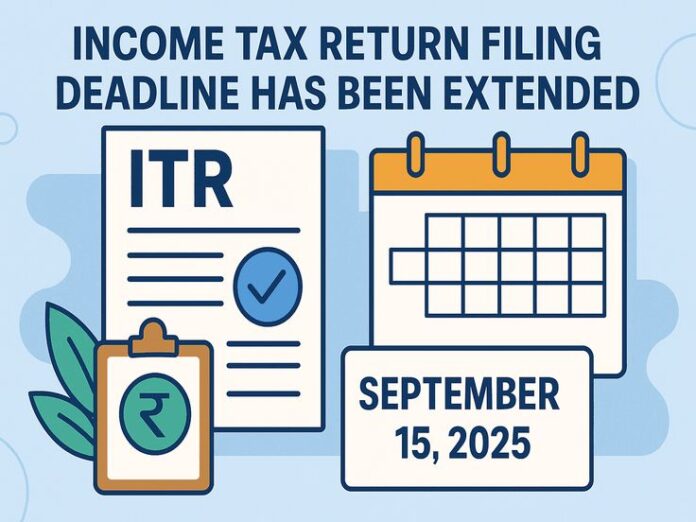With the September 15 deadline approaching for individuals to file their Income Tax Returns (ITRs), the Income Tax Department has urged taxpayers not to delay submissions until the last day. Officials have cautioned that last-minute filings often lead to system congestion and inconvenience, even as data shows a surge in the pace of return submissions.
According to official figures, more than 4.56 crore taxpayers have already filed their returns. The department noted that compliance levels have been steadily increasing year after year. For the assessment year 2024-25, a record 7.28 crore ITRs were filed by July 31, 2024, marking a 7.5 per cent rise over the 6.77 crore returns filed in the previous year. Between AY 2022-23 and AY 2024-25, ITR filings grew by more than 25 per cent, reflecting a widening tax base and improved digital compliance.
The department has simplified the filing process, enabling most individuals to file returns directly through the official portal, incometax.gov.in. Taxpayers can log in using their PAN or Aadhaar number and password, navigate to the e-filing section, select “Income Tax Return,” and proceed with filing for Assessment Year 2025-26. The system provides pre-filled details such as salary, tax deducted at source, and bank interest, which can be reviewed and updated by the user before submission.
For non-audit taxpayers, including salaried individuals and small entities, the following forms are applicable for FY 2024-25 (AY 2025-26):
- ITR-1 (Sahaj): Designed for salaried individuals whose income comes primarily from employment or pension.
- ITR-2: Applicable to individuals and Hindu Undivided Families (HUFs) with income from salary, house property, capital gains, or other sources, but without business or professional income.
Tax experts advise taxpayers to carefully select the correct form, as using an incorrect one may render the return defective.
Delays in filing carry financial consequences. Returns filed after September 15 will attract a late fee of ₹5,000. However, if total income does not exceed ₹5 lakh, the penalty is limited to ₹1,000. In addition to these fees, delayed returns also attract interest at 1 per cent per month on any unpaid tax amount until settlement.
Officials have urged taxpayers to complete the process at the earliest rather than waiting until the deadline, pointing out that early filing not only avoids penalties but also reduces the chances of errors and system-related issues caused by heavy traffic on the portal.
The rising compliance trend reflects the impact of digitisation and awareness campaigns in recent years. With easier filing procedures, pre-filled data, and simplified interfaces, more taxpayers are opting to self-file their returns without external assistance. This has contributed to the consistent growth in filings across categories.
As the deadline nears, financial planners suggest that taxpayers review their documents, verify all income sources, and ensure that deductions under sections such as 80C and 80D are correctly included to avoid discrepancies. Correct reporting, they note, helps prevent notices or rectifications later.
The department’s latest advisory also highlights the broader importance of timely filing, which contributes to financial record-keeping for individuals. A filed ITR acts as a proof of income and is often required for loan applications, visa processes, and other financial transactions.
With less than ten days to go, the focus is now on ensuring smooth compliance. The department’s message is clear: taxpayers should act promptly to avoid last-minute stress and additional costs, and to contribute to the growing culture of timely tax compliance.






